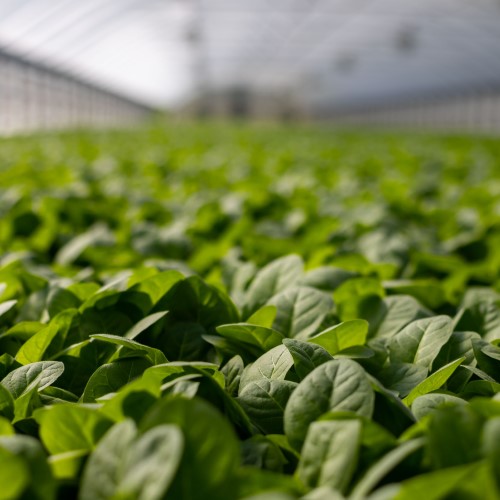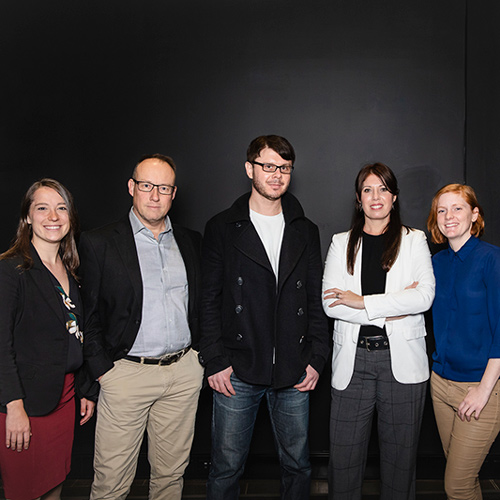Benefits
- Increases crop densities by 100%, revolutionizing CEA business models for new/existing growers
- Reduces the total energy requirement for artificial lighting in CEA by more than 40%
- Decreases freshwater usage by 95% compared to traditional farming
- Cuts down on food miles and the carbon footprint of current food supply chains.
Technology
The ICCM allows growers to take advantage of the plant’s growth cycles according to their space and power resource requirements, which doubles the output yield of any CEA farm adopting the technology.
The modular crop cultivation system allows for growth of leafy greens at a very high density, at all stages of the plant lifecycle, taking advantage of unused space and maximising power usage for high yield outputs. This increases current densities from 25-35 heads of lettuce per square metre to 50-60 heads of lettuce per square metre. The space saving innovation has been recognised by NASA, with GPA being accepted in the Deep Space Food Challenge, winning the International Innovation prize in 2021, and entering phase two of the program with a prototype being developed by Q4 2022.
GPA’s ICCM system increases production volume with the same operational cost, solidifying CEA produce as competitive and accessible. This is important as CEA produce is the only way to produce crops without dangerous pesticides and insecticides able to be farmed where it is purchased. It ensures food security and grants access to fresh and nutritious food without a premium price tag.
Potential markets
With a $2.1 trillion USD leafy-green global market, GPA hopes to operate globally within the next 24 months, once its NASA prototype and commercial pilot program operations are complete. GPAs primary goal is to create a closed loop system for leafy green producers, creating new, profitable business pathways as well as sustainable cultivation of the popular food source. In the future, GPA hopes to extend the company’s collaboration with NASA, providing robust, fresh produce food security for deep space missions and longer-term inter-planetary settlement.
Partnering opportunities
Gaia is seeking engineering experts, financial and horticultural support, and strong industry partners to create leading CEA solutions for both Earth and space.








